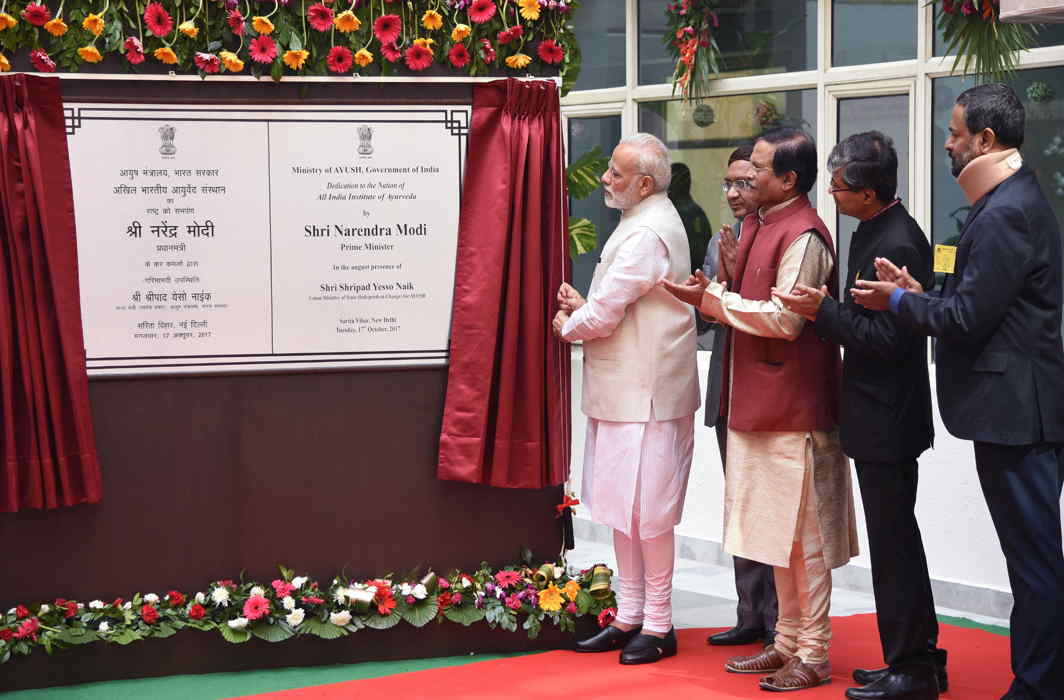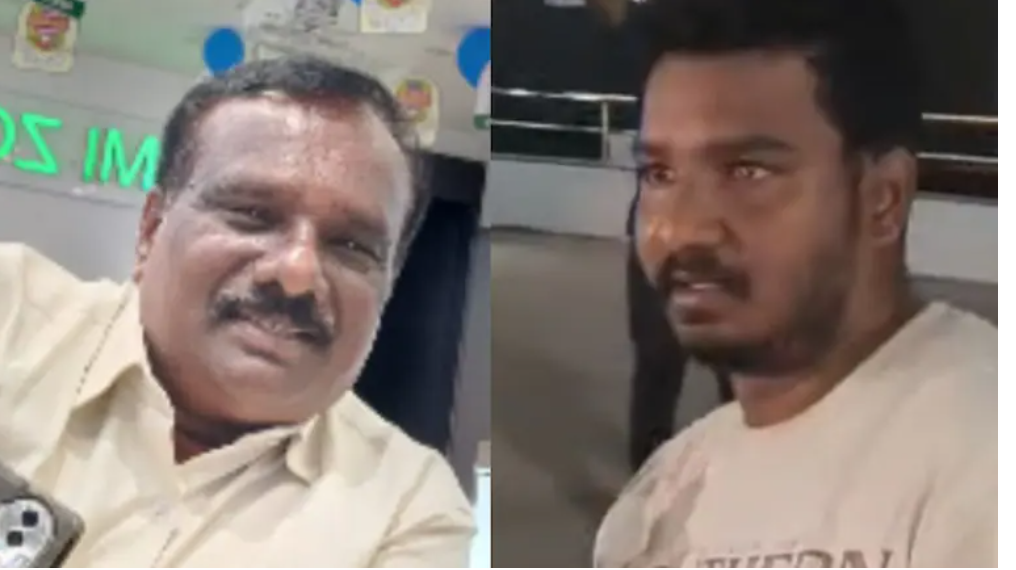[vc_row][vc_column][vc_column_text]Prime Minister pitches for ‘health revolution’, says Ayurved hospitals to be set up in every district of the country
Prime Minister Narendra Modi inaugurated the country’s first All India Institute of Ayurved (AIIA) in the national capital, on Tuesday, and pitched for the need for a “health revolution” in the country through the traditional medicine system.
While dedicating the AIIA, established on the lines of the All India Institute of Medical Sciences (AIIMS), the Prime Minister said that his government is working towards setting up an Ayurved hospital in each district of the country.
Asserting on the need for affordable and accessible healthcare for India’s poor, Modi said: “It is very necessary for the expansion of Ayurved that there is a good hospital with all facilities… in every district of the country. The AYUSH Ministry is working swiftly in this direction, and in three years, more than 65 AYUSH hospitals have been developed.”
Stressing that the world was heading “back to nature and wellness”, Modi described Ayurved as India’s strength and urged experts from the field to find medicines which can, like allopathy, give immediate relief to people but without side-effects.
The Prime Minister urged private players to use part of their corporate social responsibility funds to help strengthen Ayurved.
“We have seen the IT revolution in last 30 years. Now, time has come for a health revolution under the aegis of Ayurved. Let’s pledge to strengthen, revive Ayurved,” Modi said.
The Prime Minister suggested a relook at the existing Ayurveda syllabus and underlined the requirement for standard guidelines and treatment in the medicine system so it is not overpowered by allopathy.
Modi claimed that efforts had been made in the past to destroy “India’s strengths” and its traditions such as Yoga and Ayurved were belittled during the “era of slavery”.
“Attempts were even made to reduce the faith that Indians had on them. However, after getting freedom from slavery, there was hope that whatever was left would be preserved,” Modi said, while adding: “But it did not become a priority. Things were left to fate. Those nations who leave their heritage behind are destined to lose their identity.”
He said the AYUSH ministry in collaboration with the Ministry of Skill Development should develop short term courses for students and farmers. The farming of medicinal plants will generate new employment opportunities.
The AIIA, Modi said, would work in collaboration with the AIIMS, Indian Council of Medical Research and other international organisations and hoped that the new institute would turn into a main centre of inter-disciplinary and integrative health practices.[/vc_column_text][/vc_column][/vc_row]
























